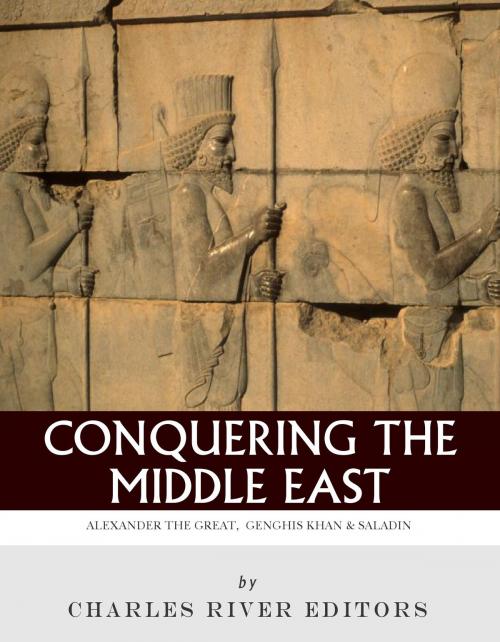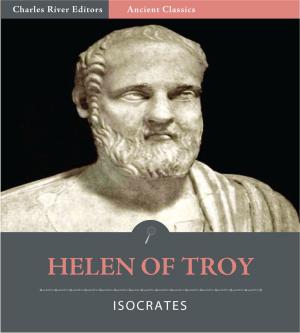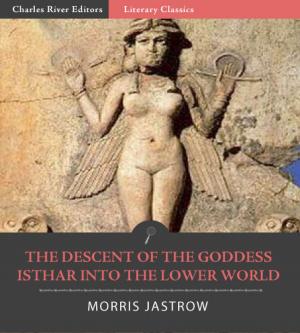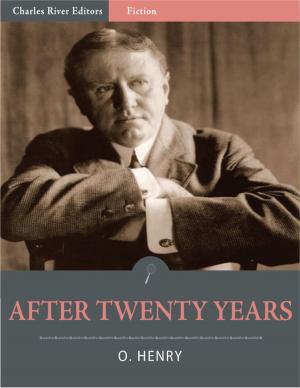Conquering Asia: The Lives and Legacies of Alexander the Great and Genghis Khan
Nonfiction, History, Ancient History, Greece, Civilization, Biography & Memoir, Historical| Author: | Charles River Editors | ISBN: | 9781475321135 |
| Publisher: | Charles River Editors | Publication: | January 12, 2013 |
| Imprint: | Language: | English |
| Author: | Charles River Editors |
| ISBN: | 9781475321135 |
| Publisher: | Charles River Editors |
| Publication: | January 12, 2013 |
| Imprint: | |
| Language: | English |
*Includes paintings and busts depicting important people, places, and events.*Discusses both common legends and little known facts about the lives of each conqueror. *Includes a Bibliography for further reading.*Includes a Table of Contents.Over the last 2,000 years, ambitious men have dreamed of forging vast empires and attaining eternal glory in battle, but of all the conquerors who took steps toward such dreams, none were ever as successful as antiquitys first great conqueror. Leaders of the 20th century hoped to rival Napoleons accomplishments, while Napoleon aimed to emulate the accomplishments of Julius Caesar. But Caesar himself found inspiration in Alexander the Great (356-323 B.C.), the Macedonian King who managed to stretch an empire from Greece to the Himalayas in Asia at just 30 years old. It took less than 15 years for Alexander to conquer much of the known world. As fate would have it, Alexander died of still unknown causes at the height of his conquests, when he was still in his early 30s. Although his empire was quickly divided, his legacy only grew, and Alexander became the stuff of legends even in his own time. Alexander was responsible for establishing 20 cities in his name across the world, most notably Alexandria in Egypt, and he was directly responsible for spreading Ancient Greek culture as far east as modern day India and other parts of Asia. In a world fascinated by men like Alexander the Great and Julius Caesar, Genghis Khan is one of historys greatest and most famous conquerors. No man, before or since, has ever started with so little and gone on to achieve so much. From a noble family but raised in poverty that drove him to the brink of starvation, Genghis Khan rose to control the second-largest empire the world has ever known (the largest being, arguably, the British Empire of the 18th and 19th centuries), and easily the largest empire conquered by a single man. And while many empires disintegrate upon the death of an emperor, like Alexander the Greats, Genghis Khans empire endured and was actually enlarged by his successors, who went on to establish dynasties that in some cases lasted for centuries.Though history is usually written by the victors, history was largely written by those who Genghis Khan and Saladin vanquished, and while Genghis was reviled, Saladin became celebrated. Saladin is widely considered one of the greatest generals in history and one of the most famous leaders of the Middle Ages, but he remains a paradox, both in personal and in historical terms. A military genius, he first served other generals and was overshadowed, late in life, by his greatest rival, Richard I of England. He was far more admired by his Christian enemies, who extolled his chivalry, than some of his Muslim rivals, who fought him for control of Egypt and Syria in the 12th century. His Christian enemies continued his name long after it was forgotten in the Middle East, only to spark a revival of his reputation in Arab culture in the 20th century. Revered as the flower of Arab culture, he was really a Kurd who nearly destroyed it. Taught to Egyptian children as a native born Egyptian hero, he was, in fact, Egypt's conqueror, the man who destroyed its native dynasty and suppressed the local Shi'ite sect. Having united almost all of the Levant under one rule, he left it as divided as before. He founded a dynasty that was eventually destroyed by slaves. Conquering the Middle East chronicles the amazing lives and conquests of each conqueror, while looking at the legends and myths surrounding each man's legacy. Along with pictures of important people, places, and events, you will learn about Alexander, Saladin and Genghis Khan like you never have before.
*Includes paintings and busts depicting important people, places, and events.*Discusses both common legends and little known facts about the lives of each conqueror. *Includes a Bibliography for further reading.*Includes a Table of Contents.Over the last 2,000 years, ambitious men have dreamed of forging vast empires and attaining eternal glory in battle, but of all the conquerors who took steps toward such dreams, none were ever as successful as antiquitys first great conqueror. Leaders of the 20th century hoped to rival Napoleons accomplishments, while Napoleon aimed to emulate the accomplishments of Julius Caesar. But Caesar himself found inspiration in Alexander the Great (356-323 B.C.), the Macedonian King who managed to stretch an empire from Greece to the Himalayas in Asia at just 30 years old. It took less than 15 years for Alexander to conquer much of the known world. As fate would have it, Alexander died of still unknown causes at the height of his conquests, when he was still in his early 30s. Although his empire was quickly divided, his legacy only grew, and Alexander became the stuff of legends even in his own time. Alexander was responsible for establishing 20 cities in his name across the world, most notably Alexandria in Egypt, and he was directly responsible for spreading Ancient Greek culture as far east as modern day India and other parts of Asia. In a world fascinated by men like Alexander the Great and Julius Caesar, Genghis Khan is one of historys greatest and most famous conquerors. No man, before or since, has ever started with so little and gone on to achieve so much. From a noble family but raised in poverty that drove him to the brink of starvation, Genghis Khan rose to control the second-largest empire the world has ever known (the largest being, arguably, the British Empire of the 18th and 19th centuries), and easily the largest empire conquered by a single man. And while many empires disintegrate upon the death of an emperor, like Alexander the Greats, Genghis Khans empire endured and was actually enlarged by his successors, who went on to establish dynasties that in some cases lasted for centuries.Though history is usually written by the victors, history was largely written by those who Genghis Khan and Saladin vanquished, and while Genghis was reviled, Saladin became celebrated. Saladin is widely considered one of the greatest generals in history and one of the most famous leaders of the Middle Ages, but he remains a paradox, both in personal and in historical terms. A military genius, he first served other generals and was overshadowed, late in life, by his greatest rival, Richard I of England. He was far more admired by his Christian enemies, who extolled his chivalry, than some of his Muslim rivals, who fought him for control of Egypt and Syria in the 12th century. His Christian enemies continued his name long after it was forgotten in the Middle East, only to spark a revival of his reputation in Arab culture in the 20th century. Revered as the flower of Arab culture, he was really a Kurd who nearly destroyed it. Taught to Egyptian children as a native born Egyptian hero, he was, in fact, Egypt's conqueror, the man who destroyed its native dynasty and suppressed the local Shi'ite sect. Having united almost all of the Levant under one rule, he left it as divided as before. He founded a dynasty that was eventually destroyed by slaves. Conquering the Middle East chronicles the amazing lives and conquests of each conqueror, while looking at the legends and myths surrounding each man's legacy. Along with pictures of important people, places, and events, you will learn about Alexander, Saladin and Genghis Khan like you never have before.















